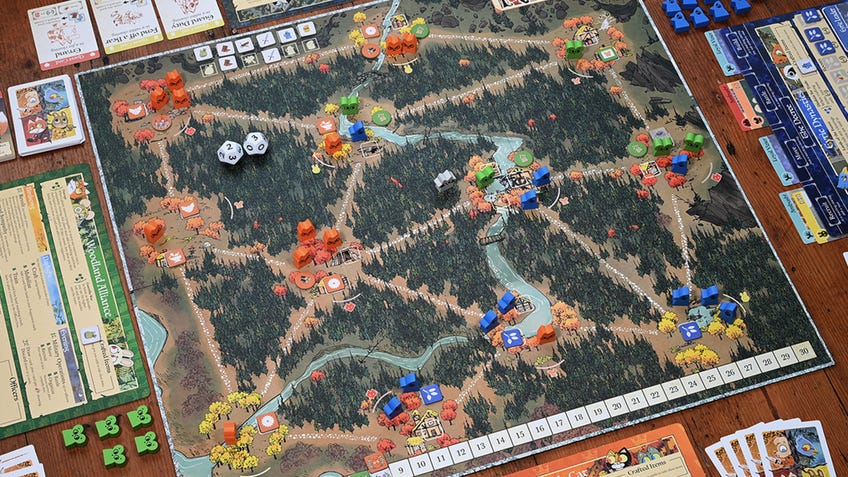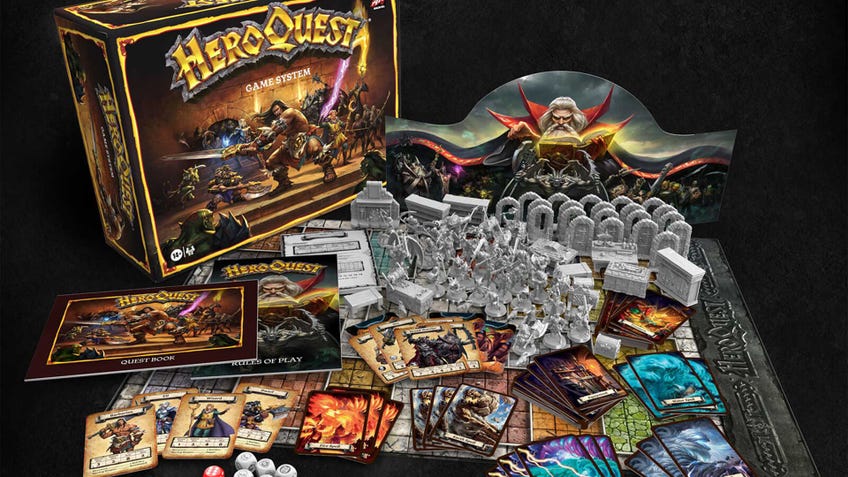So many games, so little time: How FOMO and the cult of the new changed board games
Play it again, Sam?
There’s a new cult in town and its members are pervading the board game community. They don’t participate in dark rituals, utter ominous incantations or serve any tentacled overlord. Still, they lurk among us, ducking behind the shelves of local game stores, commenting on internet forums and chucking cash at every game on Kickstarter. This cult is heralding an age plagued by a different breed of fear: the fear of missing out, or FOMO.
I am, of course, referring to the “cult of the new”, an interesting phenomenon in the context of board games. If you aren’t familiar with the concept, it refers to a culture that encourages a constant chase towards the latest game while rarely revisiting old classics and favourites. Though this mindset isn’t new, it has become more prevalent in recent years - due, at least in part, to the rise of Kickstarter, the crowdfunding king wielding a double-edged sword.
Publishers lure Kickstarter backers in with extra goodies - so long as you opt-in early, usually at a premium.
On one hand, Kickstarter has made it easier than ever for a small designer with a great idea to bring their game to tables around the world. Without Kickstarter, it is unlikely that ambitious and risky games such as Gloomhaven or Root would ever have been made. At the same time, Kickstarter has sparked a trend that is spreading like wildfire, fuelled by flashy art, miniatures, add-ons, stretch goals and deluxified components. We are being pushed towards buying games before they are released by selling us on cool components. Publishers lure backers in with extra goodies that promise to enrich the aesthetics, tactility and gameplay of their latest projects - so long as you opt-in early, usually at a premium. But if you don’t buy it now you’ll miss the promos! The system feeds on FOMO and nostalgia.
The fact that Kickstarter allows creators to advertise and essentially charge you for games months or years ahead of release keeps our eyes looking ever forward. As soon as we get our hands on the latest game we are tempted towards the next exciting release. Kickstarter isn’t the only entity perpetuating this way of thinking. The board game industry is bigger than it ever has been, and with a larger market comes more marketing.

In many ways this is nice, but it isn’t without potential flaws. There is a great deal of innovation and experimentation happening in the board game space right now. There is also an overwhelming amount of games coming out every year. It makes sense that we’re seeing more people play games only a few times before moving on to the next one - there are so many new things to try!
In an attempt to sustain the influx of new players and keep them engaged, we are beginning to see replayability decrease.
Yet, this isn’t only changing the way we play games; it’s beginning to affect the way games are designed as well. In an attempt to sustain the influx of new players and keep them engaged, we are beginning to see replayability decrease. The phrase “easy to learn, difficult to master” has become a cliché as more and more games tout simple rulesets to welcome newcomers and promise surprising depth for gaming veterans.

As it turns out, it’s very difficult to actually achieve this balance. Abstract games such as chess, Hive and Shobu are particularly adept at pulling this off, but usually designs are streamlined to the point of being focused on a single, sometimes gimmicky, mechanic that takes centre stage and causes the game as a whole to lack the staying power it promises. Once the novelty of the central mechanic wears off, you’ve had your fill.
Cole Wehrle, designer of Root, Oath and Pax Pamir, expressed a similar opinion in an interview with Dicebreaker earlier this year: “I do think about mechanics a lot, but I just never take them as a starting point because I just find that I can build a cute little engine, but it always produces kind of a lukewarm game.” This is a potential danger of modern board game design; we could see a surge in shallow games in order to make games more marketable to more people. A lukewarm game is not a game you keep coming back to.
However, replayability is not solely the mark of a great game. At least, not for everyone. The reality is that some people are genuinely happy with playing a game a handful of times and then moving on to the next thing. A lot of modern designs are targeted towards those players. There’s even an audience for games that have finite plays by design in legacy games and escape room games, but there are also plenty of games that cater to those who are looking for systems and mechanics to sink their teeth into for a long time. With the expansion of the board game community comes an expansion of taste. Not everyone is looking for the same experiences or expects the same things from board games, and that’s great. What we have to watch out for is the market shifting to only include certain types of games.
The reality is that some people are genuinely happy with playing a game a handful of times and then moving on to the next thing.
Do we still need to be wary of greedy companies bamboozling us by hiding shallow gameplay behind fancy components and pretty art? Yes, but overall we are in an unprecedented time of innovation in the board game space. There’s room for all sorts of games, and we have to be willing to accept the fact that not every game is going to give you endless hours of enjoyment. We just have to be careful that shallow, lukewarm games and exploitation don’t become the norm.
The cult of the new isn’t a bad thing, but it is a game-changer. All hail... whatever comes next!


